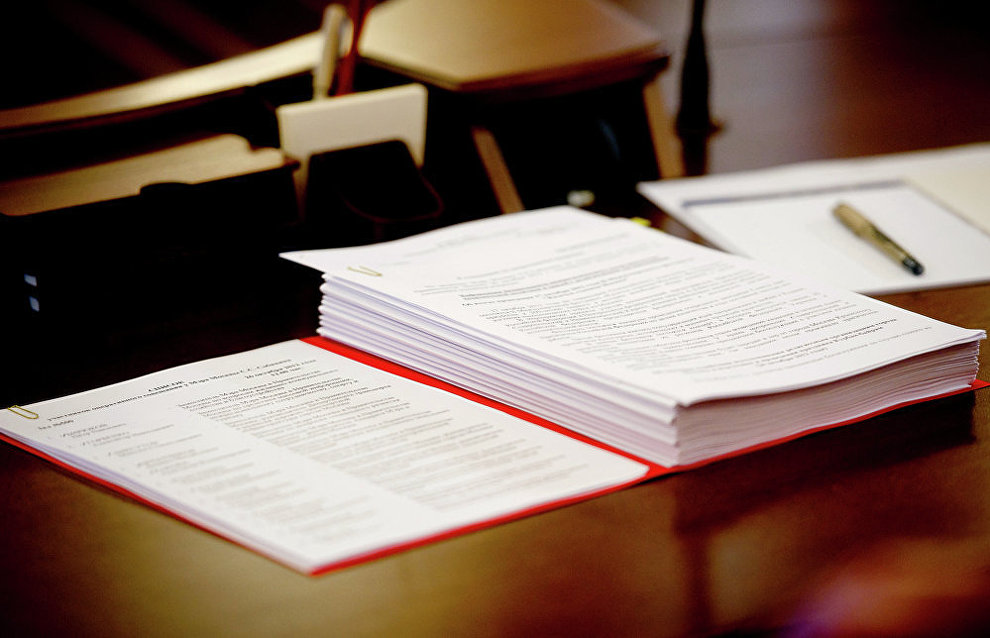The government approves concept of Russia’s Arctic Council chairmanship
Prime Minister Mikhail Mishustin has approved the concept of Russia’s chairmanship of the Arctic Council in 2021-2023 and a detailed plan of events.
During the chairmanship in 2021-2023, Russia will develop cooperation with the participating countries in four high-priority directions: the Arctic population, including the North’s small indigenous ethnic groups, protection of the Arctic environment, including climate change, socio-economic development of the region, and strengthening the Arctic Council’s role as the main platform for multilateral cooperation in high latitudes. These provisions are included in the concept of Russia’s chairmanship of the Arctic Council in 2021-2023, approved by Prime Minister Mikhail Mishustin, the government’s press service said.
The concept complies with the tasks, set by President Vladimir Putin dealing with national policies in the Arctic, the strategy for the development of the Russian Arctic zone, and the national security policies up to 2035.
Presidential Plenipotentiary Envoy to the Far Eastern Federal District Yury Trutnev noted that the Russian Federation was open to cooperation with other countries in terms of the Arctic’s economic development, improving the quality of people’s lives and implementing new investment projects. He added that the country leds the way in certain areas linked with Arctic development, including the development of the Northern Sea Route, science and technologies and environmental protection.
According to Trutnev, international cooperation can facilitate the development of current research projects and launch new ones. It can also promote cooperation between higher education institutions, strengthen partner-like relations between business communities and consolidate economic ties.
Presidential Adviser Anton Kobyakov pointed out that chairmanship was a unique platform for facilitating economic growth, international cooperation and support for investment projects, being implemented under public-private partnership principles. It was, he said, also an excellent opportunity to expand cooperation between Arctic states and coordinate their activities in the interests of ensuring the region’s sustainable development, protecting the environment and preserving the culture, traditions and languages of indigenous Northern ethnic groups.
Mishustin also approved a detailed plan of the main events, including cultural festivals, scientific conferences, conventions, expeditions, WorldSkills competitions, students’ summits, roundtables and forums. Federal and regional executive agencies, public and educational organizations and business companies will sponsor the events.
Northern cities, including Yakutsk, Salekhard, Murmansk, Arkhangelsk and Syktyvkar, as well as northern Norway, will be the venue for most events. This will allow foreign guests to gain an insight into polar Russian regions and to choose the most investment-friendly territories. The planned events are to involve over 467,000 people.
Official events include meetings of the Senior Officials Committee of the Arctic Council, talks involving its working and expert groups, as well as meetings between members of the Arctic Economic Council, due to be chaired by Russia from May 2021. In 2021 and 2023, there are plans to hold the Arctic: Territory of Dialogue International Arctic Forum. This event has already won a reputation as a key platform for discussing the socio-economic development of Northern territories and drafting multilateral partnership tools.
The document’s Economic Cooperation section includes events dealing with the development of the continental shelf, strengthening ties between the chambers of commerce and industry, shipbuilding issues and the development of aqua-culture.
Participants in a global summit on permafrost thawing, scheduled for 2023, as well as conferences on adapting the region to global climate change will discuss the highly important climate change issue. They will also focus on ways of upgrading the environmental monitoring system, fighting micro-plastics pollution, preventing oil spills, preserving biodiversity and promoting “green” energy.
The participants will actively discuss the development of human capital and support for small indigenous ethnic groups. Priorities include efforts to attract new specialists to the region, to protect the health of local residents and to improve the quality of the urban environment.
Some events are linked with the international project Children of the Arctic aiming to support new forms of education, with due consideration for the climatic and cultural specifics of polar regions, and an initiative to preserve the cultural and linguistic legacy of indigenous Northern ethnic groups. During its chairmanship, Russia will hold nationwide Arctic Games, a traditional reindeer breeding championship, a number of youth and student forums and seminars to popularize local languages.
Russia is interested in preserving the Arctic as a territory of peace and stable cooperation, the government’s press service said.
Minister for the Development of the Russian Far East and Arctic Alexei Chekunkov noted that Russia was interested in preserving the Arctic as a territory of peace, stable and mutually beneficial cooperation. Any cooperation in the North should rely on strategic interests of the entire humankind. Consequently, we will discuss a positive cooperation agenda during the events, he said. We will touch upon global climate change, the use of renewable energy sources to reduce greenhouse gas emissions and the development of the Northern Sea Route.
He added that all issues linked with cutting-edge technology and cooperation in this sphere will also be raised. Chekunkov noted that social aspects, protecting the rights of small indigenous Northern ethnic groups and the development of Arctic tourism were no less important.
In late May, Iceland will be the venue of a meeting of foreign ministers from the Arctic Council’s member countries. The participants will announce that Russia is to assume chairmanship of this authoritative international organization for two years.
